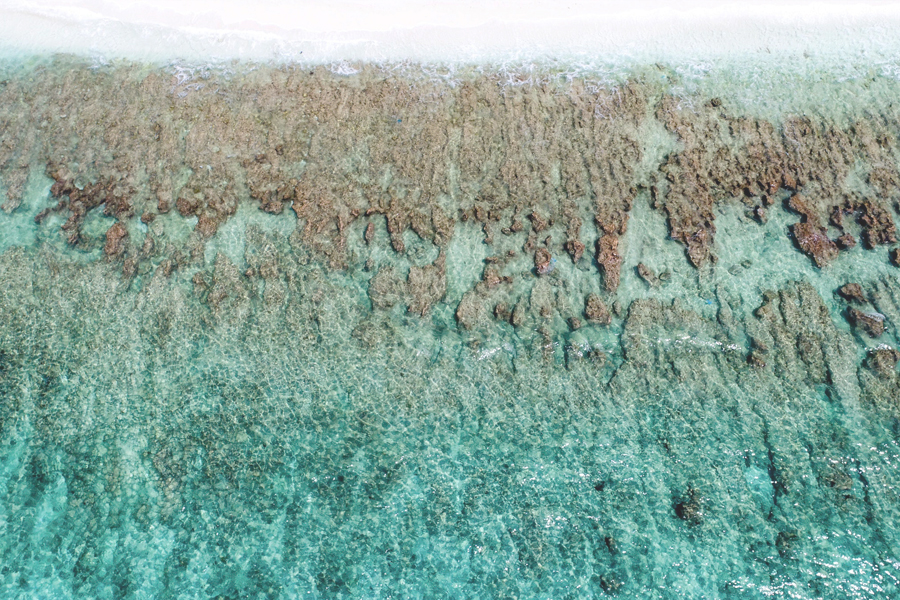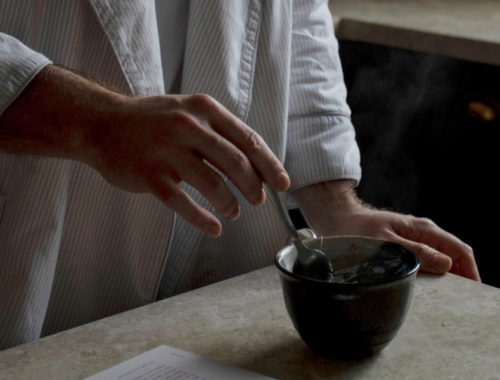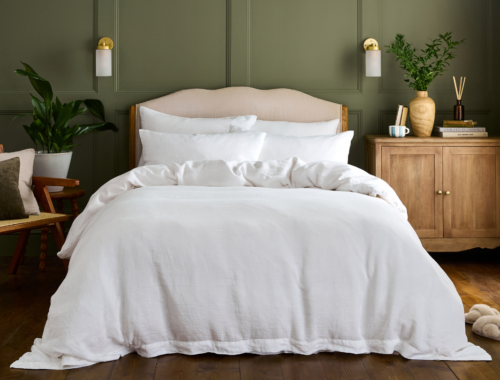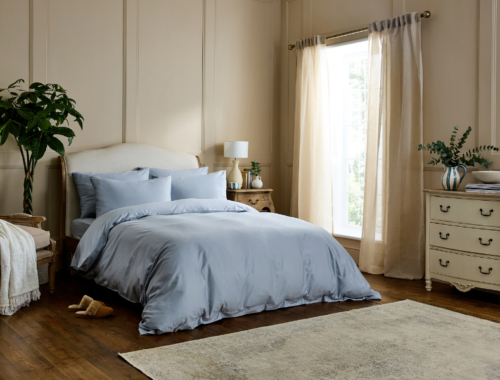
the plastic microfiber issue: small steps for a better earth
One thing has become clear: decades of washing synthetic clothes and home textiles has contributed to vast plastic pollution. Yep, it’s pretty scary. Although it’s a really tough issue with no obvious solution yet, there are things you can do in your home to make a difference.
where do plastic microfibers come from?
While all fabrics will shed when they’re washed, synthetic products shed hundreds of thousands of plastic microfibres in each wash that don’t biodegrade like those from natural fabrics do. Natural fibres that are born from the soil will one day return there without harming our earth. Cotton can take under a year to biodegrade, while synthetics like nylon take around 30-40 years. Washing machines don’t currently have filtration systems to catch these tiny plastic particles— too small to be seen with the naked eye—so they’re washed into the oceans that connect us all and make their way into our food chain and drinking water.
Making this issue even more of a modern menace is the fact that most synthetic fabrics are treated with toxic chemicals during the manufacturing stage which aren’t safe for marine life or human consumption. That’s not something we want making a re-appearance on our dinner plates.
We get it. It’s easy to feel as though you’re drowning in a tidal wave of bad news as more transparent reporting and high-profile research comes to light. We can all feel weighed down or guilty about not being able to do enough, but it isn’t an all or nothing game.
simple ways to lessen your impact
- The first one’s easy. Common sense says to only wash your clothes when really necessary.
- Secondly, ditch the tumble dryer when possible. Yes, we know, the great British weather sometimes means that this isn’t always ideal, but excessive heat and spinning increases the fragility of fabrics, which in turn increases the microfibre shedding.
- Focus on making progress with your shopping choices. It’s not always possible, but when the option is there, choose natural fibres like cotton, linen and wool instead of synthetic ones like polyester, nylon and viscose.
- While we wait for macro solutions, something we recently discovered is the Guppyfriend washing bag. It’s designed as a first step towards a holistic solution, holding your synthetic items and stopping microplastics from escaping into the water. If anyone has tried these out already, we’d love to hear what you think of them.
- Without pressure from customers, brands have no motivation to change and provide sustainable switches. So, together our purchases and voices can all help the issue to be taken more seriously.
We’ve always prided ourselves on offering the best for your home and our planet. Our bedding and towels are made from 100% organic cotton.
You May Also Like

celebrating fairtrade fortnight with seed & bean chocolates
March 2, 2020
why invest in high-quality bedding
April 11, 2023


